1966
....and all that! (*)
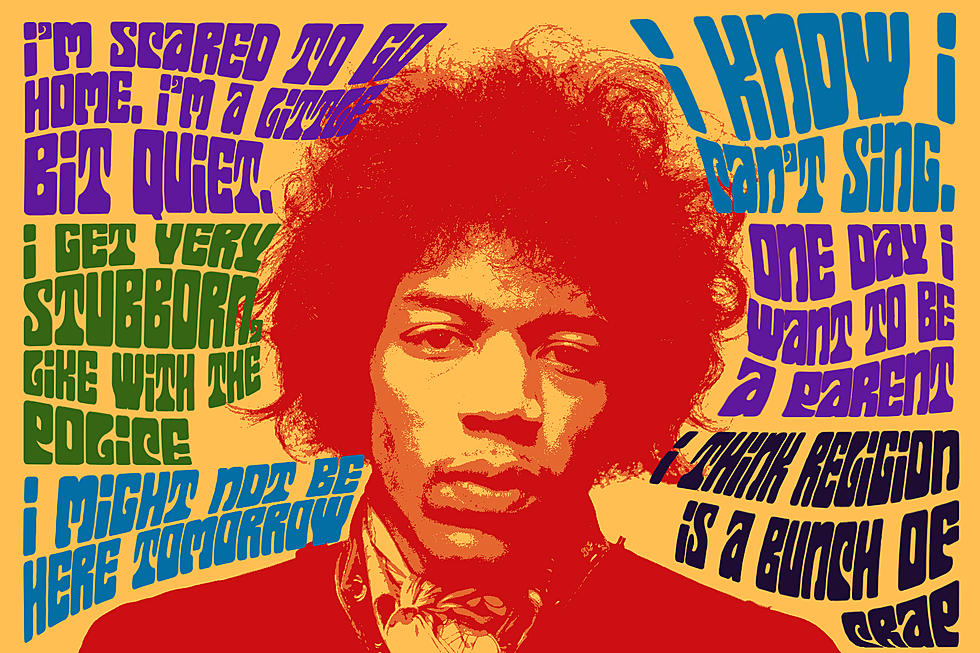
make love not war
Well, let’s start this personal review of 1966 with what didn’t happen – Germany did not win the World Cup. So let’s hear no more about that. No one had yet stepped on the moon, you’ll have to wait until 1969 for that to happen. The Electric Prunes, however, did release a single "Ain’t it Hard". Now that is significant! I was 13 years old and as far as I was concerned music did not exist before then. Radio Caroline had been broadcasting for just two years and Harold Wilson's government at the time was quite prepared to send in the Navy to sink it. These young-upstarts were going to spoil the big launch of Radio One (Sept. 1967).
What is Radio Caroline I hear you ask? It’s a pirate ship broadcasting from out in the North Sea to spotty teenagers hiding a transistor radio under their pillows, it could only be received when it was dark. According to some, it was rebellious and anti-establishment. The 'Disc Jocks' said things like "damn" and "bloody" and generally encouraged the youth of the day to "make love and not war".
Throughout the country, a few intrepid DIY enthusiastic sailors had decided to ignore The Electric Prunes and build a boat in their front room and at the same time start a sailing club. During the 60's they sprung up at every available location. The middle classes found they had not just more leisure time but more importantly had some spare cash. As Harold Wilson said at the time 'You've never had it so good'.
Sailing club members were arriving in their Ford Cortina’s (Mk1's obviously, the MkII didn’t come out until October). A few might have had a Rover P6, described at the time, as the 'working man’s Rolls Royce'. By far, the most popular car would have been the Mini. A new Mini Standard would have set your family back £495! Cheap? Not really, the National Average UK wage was £28 per week.
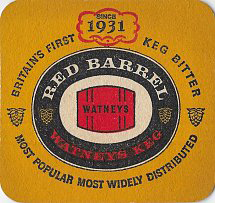
And here’s one statistic for the oldies – a pint of Red Barrel, 1/10d (new pence equivalent - £0.0916p). What’s that, you might ask? Well ‘bleeding Watney’s Red Barrel’ was Britain’s most popular beer until Monty Python got hold of it.
In the mid 1960’s, Britain went boating mad. What kicked off this extraordinary maritime revolution was waterproof glues developed for bomber aircraft. The availability of plywood and plastic transformed the economics of getting on the water, not in a high-speed Torpedo Boat or Mosquito bomber but in a kit-built dinghy. The TV played a big part, with DIY presenter Barry Bucknell and boat designer Jack Holt producing the Mirror Dinghy.
This was sponsored by the Daily Mirror (hence the red sails). They published plans for this affordable, self-build boat and over the years 70,000 have been built.
You could have one built for you, but more likely, you purchased a kit and you did it yourself in the front room. The cost, well, £63/11s. A few weeks' work and glue-sniffing, would have got you and your family on the water.
Alongside would have been GP14’s which by then was well established in the sailing circuit. Especially so in my area, as the main kit provider was Bell Woodworking in Leicester. Merlin Rockets and Fireballs even today look modern and sleek, back in 1966 they were the ‘cutting edge design’ by then 500 Merlin’s had been built nationally.
So as not to be accused of bias, other popular classes that might have been seen on the waters of the UK in 1966 were:
| International 14 (1928) | National 12 (1936) |
| Merlin Rocket (1946) | International Moth (1929 |
| Cherub (1953) | Enterprise (1956) |
| Finn (1949) | Fireball (1961) |
| 420 (1959) | 505 (1954) |
| Flying Dutchman (1950) | Flying Fifteen (1947 |
| Mirror (1963) | OK (1960) |
| Optimist (1947) | Snipe (1931) |
| Albacore (1954) | National 18 (1930) |
| Firefly (1946) | Graduate (1952) |
| Hornet (1952) | Osprey (1953) |
| Scorpion (1960) | Solo (1955) |
| Wayfarer (1957) | British Moth (1932) |
So, where is the Laser? Answer - not even a pipe dream (real men smoked pipes in those days). That didn’t get unveiled until 1971 in New York. So it was a few years more before they managed to sail across the pond to the UK. It's interesting to compare the Portsmouth Yardstick list (introduced in 1952) with a PY chart from 10 years ago, over 50 new classes, mostly in the area 130 to 100, arguably far too many! All of them are probably plastic based!
So, in Britain in 1966, what may have been the main worries of these pioneer sailing club members? Internationally, the Vietnam War was in full blow, anti–war riots in the USA - big style! Certainly, for me, in my Edinburgh home, was that Radio Caroline in October dragged its anchor and ended up on the beach at Frinton. If Harold Wilson had not been on HMS Tiger at the time talking to Ian Smith, the racist Rhodesian Prime Minister, I am sure he would have had it towed out to sea and sunk!
Taking the country by storm at the time was The Beatles (with their long hair and collarless suits). This was the year John Lennon said they were more popular than Jesus. It was probably true, but it didn’t stop Mary Whitehouse (who she?) from having an apoplexy fit over the morals of the youth of the day (I THINK WAS A REFERENCE TO ME!). A partner with her in the campaign to clean up television/films/music was Malcolm Muggeridge (a committed Christian), who later was described as a "compulsive groper", reportedly being nicknamed "The Pouncer" and as "a man fully deserving of the acronym NSIT — not safe in taxis".
Then there was the arrival of the 'concept album' ‘Revolver’ by The Beatles, (not by Mary Whitehouse!). This I can say without fear of contradiction was one of the most significant pieces of music ever, ever produced in the whole world, at least up until their next LP - 'Sgt. Pepper's Lonely Heart Club Band' a year later. That then became the most significant piece of music ever, ever produced. . . etc. Well . . . it was, until a festival called ‘Woodstock’ in August 1969, but by then I was 16 yrs old and ready to take on the world!
And as for music, well mainstream music lost its soul a long time ago, gone is originality, computer technology in the studio replacing the musical instrument and even the voice. Everybody knows music died in 1970 with the passing of Hendrix and again with Jim Morrison in 1971 and even again with Marc Bolan in 1977. . . and so on. And don’t give me any rubbish about the 60’s groups not standing the test of time because I am talking about the Rolling Stones, Fleetwood Mac, The Who, Pink Floyd, The Kinks and Led Zeppelin.
I do, however, ask myself, has sailing lost its soul as well? If I replaced these group names with Merlin Rocket, Fireball, GP14, Solo, and Wayfarer. Does it confirm my suspicions? Have they also stood the test of time? Of course they have, not only that – they got better. Are the numerous plastic boats of today even going to get a mention in 2066? My argument is that by then all boats will probably all look the same. . . .Oh! Wait a minute. . . .isn't that the case now?
In 1966 if you wanted to sail you probably built your own boat and like the 1966 sailing enthusiast you also built your own clubhouse at the same time. Today we listen to computer generated music and buy computer generated dinghies. I watched Ben Ainslie in the America's Cup this year with a laptop permanently attached to the front of his buoyancy. Hmmm. . . . don’t worry all you 'techies', Gill or Musto will have one suitable for club racing very soon.
There was, however, one oldie of the period that made the news 66-67. Sir Francis Chichester, aged 65 sailed into the record books and the nation’s affection by circling the globe in Gypsy Moth IV, stopping only for a cold beer in Sidney. Could any sailor of the modern era do that again without the aid of a microchip, I very much doubt it. I suspect the 1966 sailors would have been standing at the bar drinking their Watney’s Red barrel, moaning about 'this old fella' not doing in a flat cap and a sports jacket, and of course, as with all generations, moaning about the youth of the day!
Chichester's achievement, because of the minimal technology at the time, was mostly down to character, stamina, and resourcefulness, not battery recharging cycles or 24-hour instant communication with 'Huston Control' and a cupboard full of 'experts' waiting to advise you when to go to the toilet. Am I talking rubbish well I am a little bit – nothing should stay the same, if you can improve something – do so, whether it’s music or sailing but let’s have it from within the person not from microchips. Otherwise, it’s just down to those with the latest technology and therefore with the most money that wins.
Let’s see sailing continue to develop the individual, to make people, and not just young people, more resourceful and practical. Do not expect others to do it for you – get off your backside and do it yourself. Join a committee, join a work party, and above all - go sailing! Just aim to be more Sir Francis Chichester and less Sir Ben Ainslie, please.
*PS - The title '1966 and All That' was a brilliant book by Craig Brown.
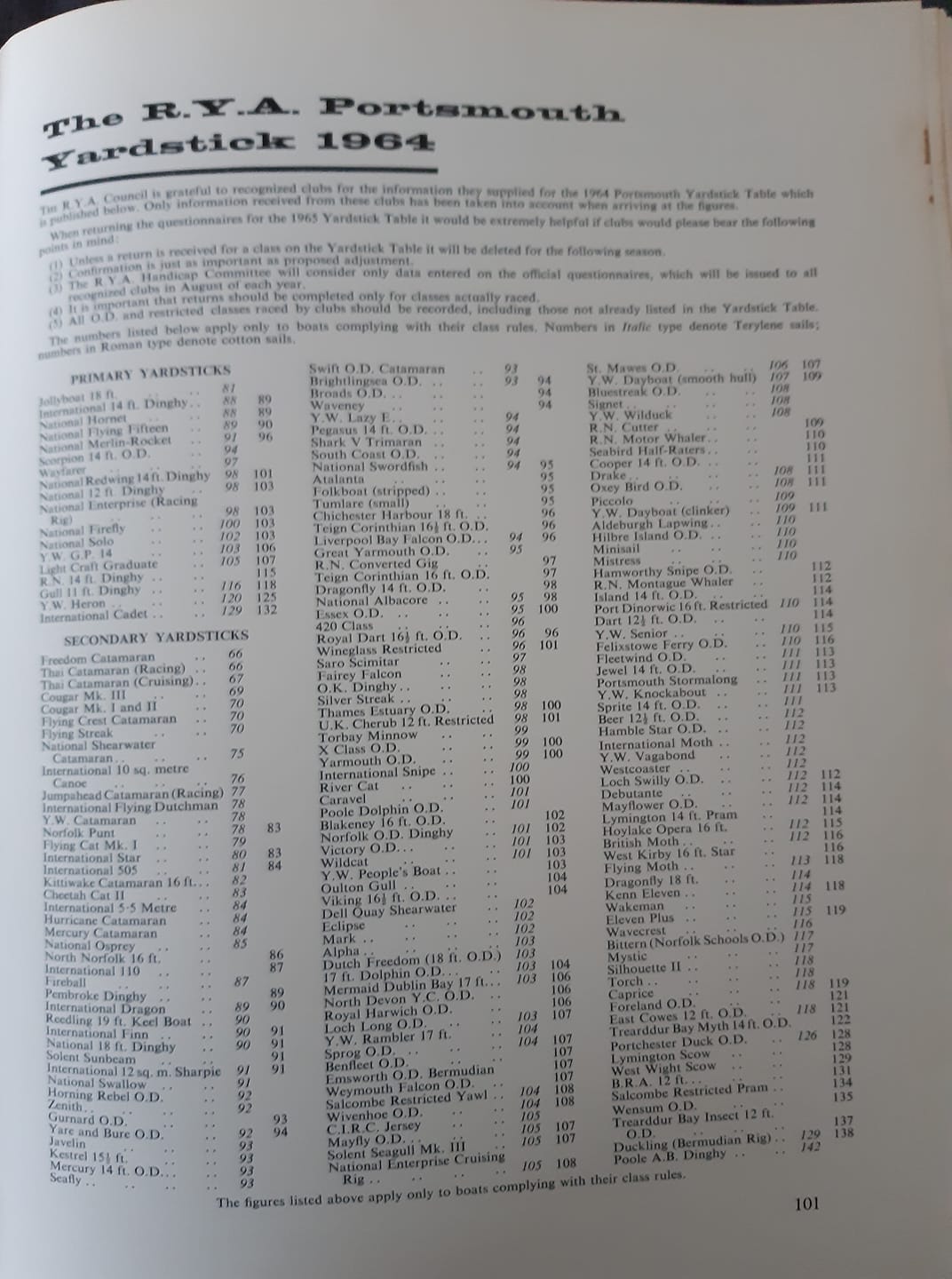

A great album

Frank Zappa
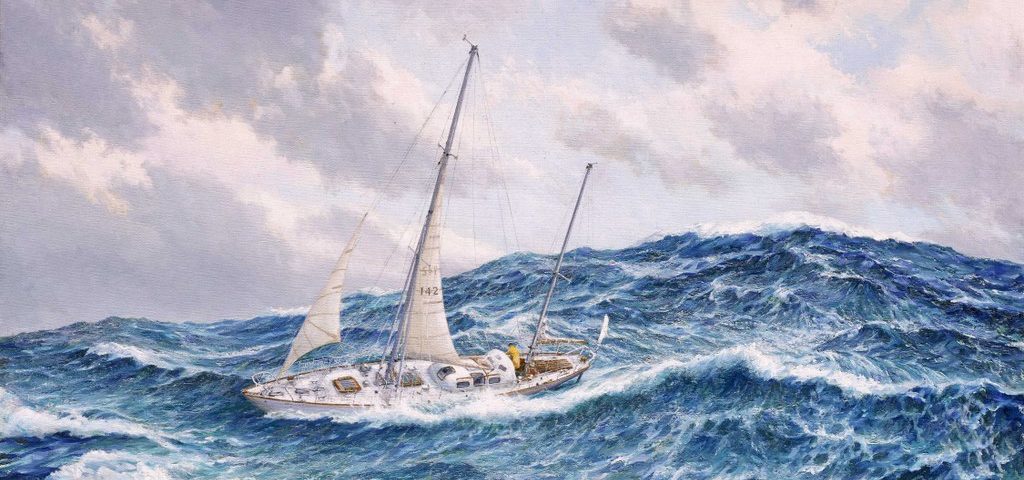
Gypsy Moth
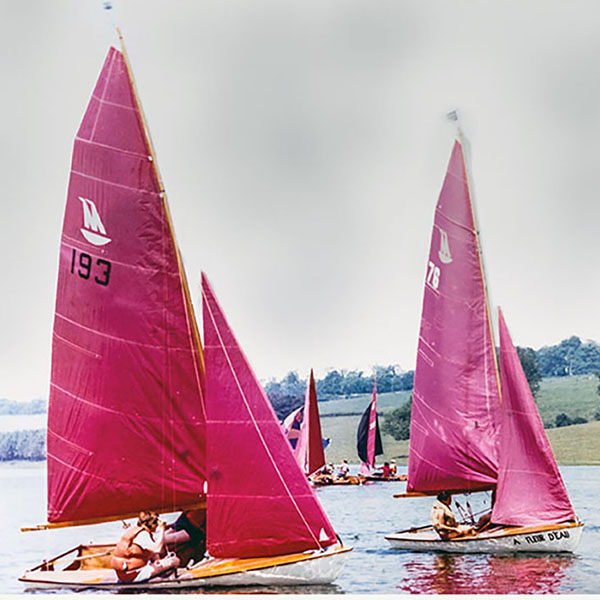
Mirror 14 (later Marauders).
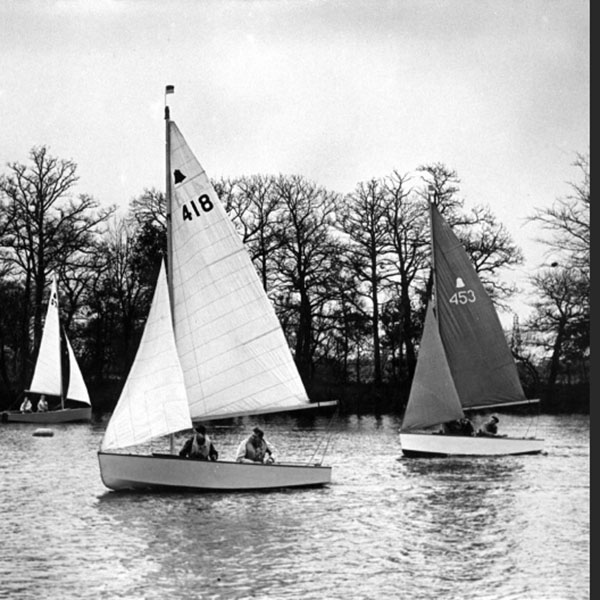
Early GP14's
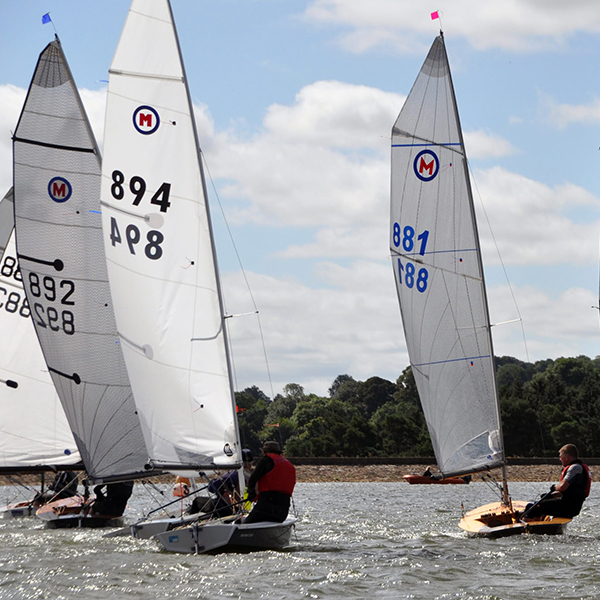
British Moths
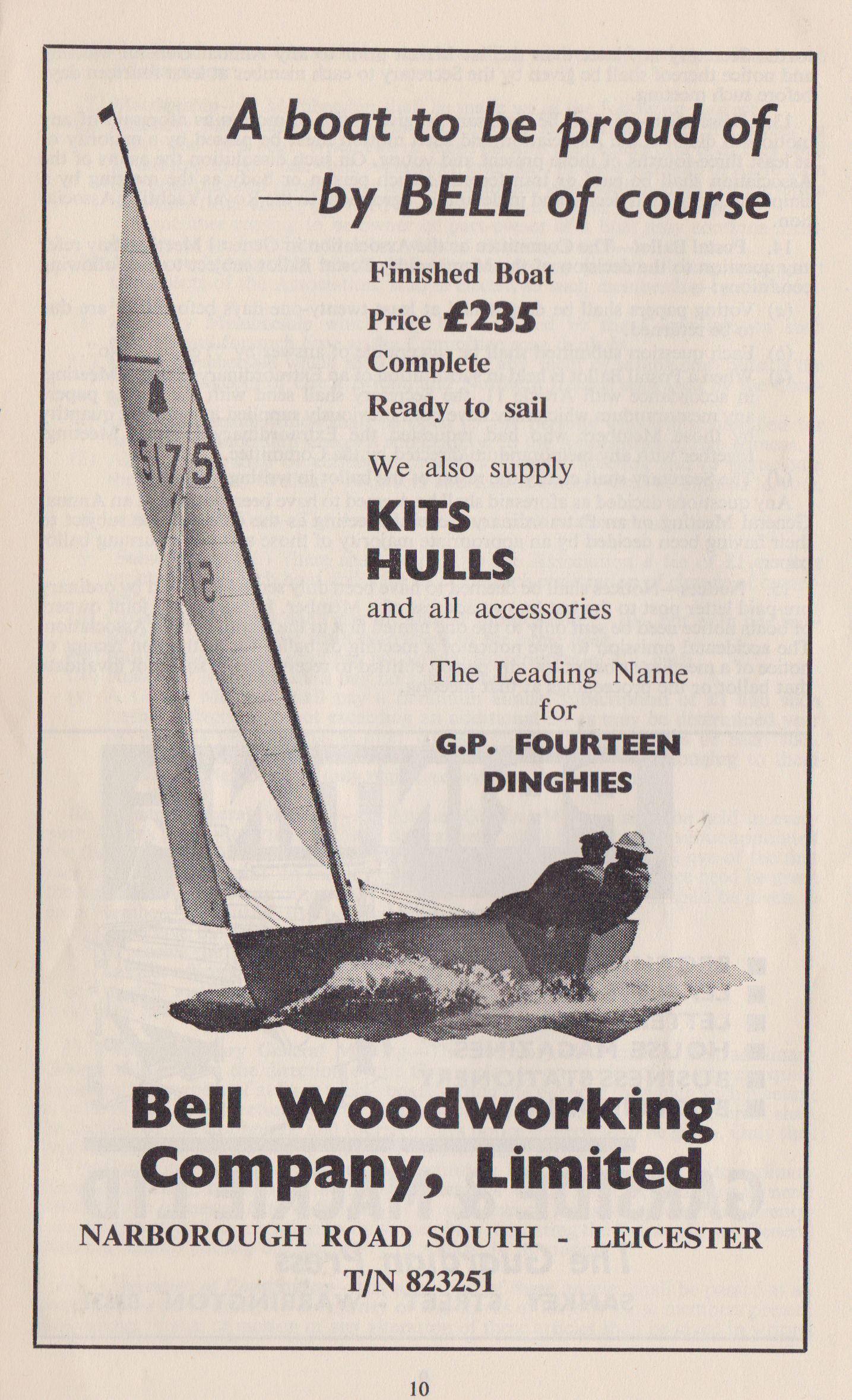
Bell Advert from 1966